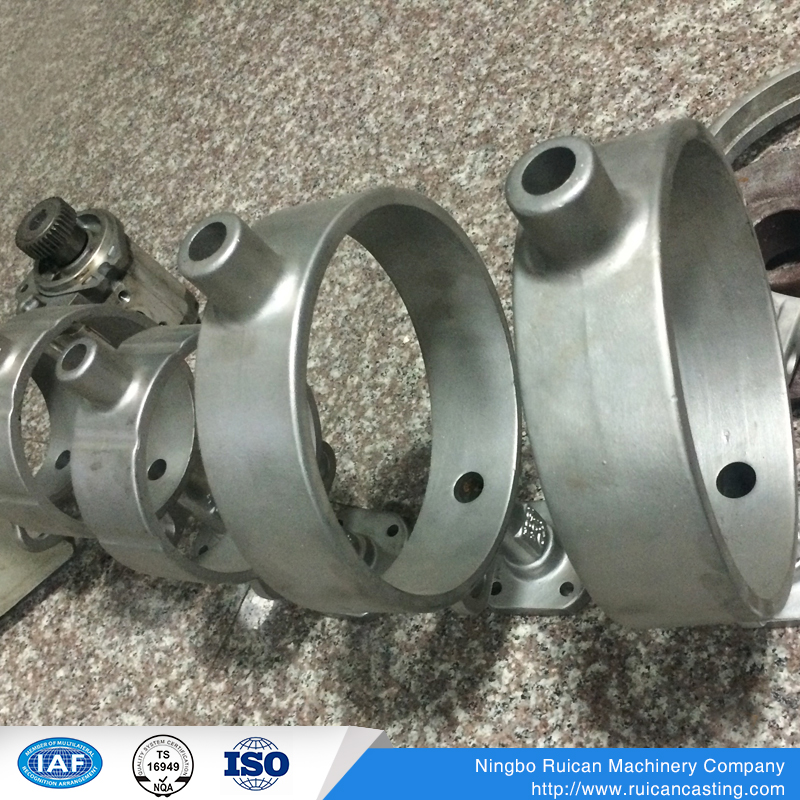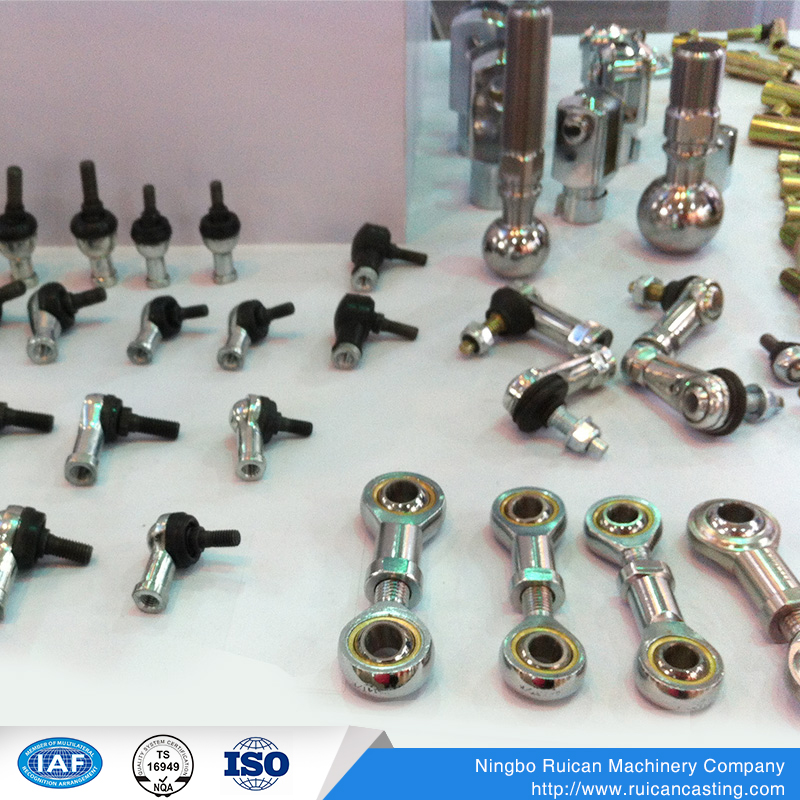Overall, steel casting CNC machining pipe fittings are highly durable due to their material strength, precision machining, corrosion resistance, pressure and temperature resistance, and structural integrity. These fittings are designed to withstand the demanding conditions of various industries and provide a long-lasting and reliable solution for fluid transportation systems.
Main uses and application fields: Steel casting CNC machining pipe fittings are widely used in various industries and applications due to their versatility, durability, and reliable performance. Here are some of the main uses and application fields of steel casting CNC machining pipe fittings:
Oil and gas industry: Steel casting CNC machining pipe fittings are extensively used in the oil and gas industry for various applications such as drilling, extraction, transportation, and refining processes. These fittings ensure efficient flow of oil and gas through pipelines, connecting different components, and maintaining the integrity of the system.
Construction and plumbing: Steel casting CNC machining pipe fittings play a crucial role in the construction and plumbing industry. They are used in residential, commercial, and industrial buildings for water supply systems, drainage systems, and HVAC (heating, ventilation, and air conditioning) systems. These fittings provide leak-proof connections, ensuring the smooth flow of water and other fluids.
Manufacturing and industrial applications: Steel casting CNC machining pipe fittings find wide applications in manufacturing and industrial sectors. They are used in factories and industrial plants for the transportation of various fluids such as chemicals, gases, and liquids. These fittings help in connecting different equipment, machinery, and processing units, ensuring the efficient operation of the system.
Agriculture and irrigation: Steel casting CNC machining pipe fittings are used in the agriculture sector for irrigation systems. These fittings connect pipes and sprinklers, ensuring the proper distribution of water for crops and plants. They are designed to withstand high pressure and provide a reliable connection, even in harsh agricultural environments.
Power generation: Steel casting CNC machining pipe fittings are utilized in power plants for the transportation of steam, water, and other fluids in the power generation process. These fittings are designed to handle high temperatures and pressures, ensuring the safe and efficient operation of power generation systems.
Chemical and petrochemical industry: Steel casting CNC machining pipe fittings are widely used in the chemical and petrochemical industry for the transportation of chemicals, gases, and hazardous materials. These fittings are designed to resist corrosion and provide a secure connection, ensuring the safe handling and transport of these substances.
In conclusion, steel casting CNC machining pipe fittings are essential components used in various industries and applications. Their versatility, durability, and reliable performance make them suitable for use in the oil and gas industry, construction and plumbing, manufacturing and industrial applications, agriculture and irrigation, power generation, and the chemical and petrochemical industry. These fittings ensure the efficient and safe flow of fluids, providing leak-proof connections and maintaining the integrity of the system.
4. Cause of the fault Steel casting CNC machining pipe fittings are essential components used in plumbing systems to connect pipes, tubes, and other plumbing fixtures. These fittings are made from high-quality steel castings and undergo precision CNC machining to ensure accurate dimensions and reliable performance.
The steel casting process involves melting steel and pouring it into a mold to create the desired shape. This method allows for the production of complex and durable pipe fittings that can withstand high pressure and temperature conditions. Steel casting also provides excellent mechanical properties, such as high tensile strength and impact resistance, making it ideal for demanding applications.
After the steel casting process, the pipe fittings undergo CNC machining to refine their shape, dimensions, and surface finish. CNC machining utilizes computer-controlled tools to precisely shape and cut the fittings according to the required specifications. This process ensures that each fitting is accurately sized and properly aligned, enabling seamless connection between pipes and other plumbing components.
Steel casting CNC machining pipe fittings offer several advantages. Firstly, they have excellent dimensional accuracy, ensuring a tight and leak-free connection between pipes. This is crucial in plumbing systems to prevent water or gas leakage, which can cause damage and pose safety risks. Moreover, the precise dimensions of these fittings allow for easy installation, reducing the time and effort required for plumbing assembly.
Secondly, steel casting CNC machining pipe fittings exhibit superior strength and durability. The use of high-quality steel castings ensures that the fittings can withstand high pressure and temperature conditions, making them suitable for various industrial and commercial applications. These fittings are resistant to corrosion, rust, and wear, ensuring a long service life and low maintenance requirements.
Another advantage of steel casting CNC machining pipe fittings is their versatility. They come in a wide range of shapes, sizes, and configurations to accommodate different plumbing requirements. Whether it is a simple elbow, tee, coupling, or a more complex cross or reducer, there is a fitting available to meet specific plumbing needs. Furthermore, these fittings can be customized with additional features or modifications to suit unique application requirements.
In summary, steel casting CNC machining pipe fittings are essential components in plumbing systems. They are made from high-quality steel castings and undergo precise CNC machining to ensure accurate dimensions and reliable performance. These fittings offer excellent dimensional accuracy, strength, durability, and versatility, making them suitable for various industrial and commercial applications. With their superior quality and performance, steel casting CNC machining pipe fittings provide a reliable and efficient solution for plumbing systems.
5. How to install and use Installation and Use of Steel Casting CNC Machining Pipe Fittings
Steel casting CNC machining pipe fittings are essential components used in plumbing systems to connect pipes, tubes, and other plumbing fixtures. Proper installation and use of these fittings are crucial to ensure a tight and leak-free connection between pipes. Here is a step-by-step guide on how to install and use steel casting CNC machining pipe fittings:
Preparation:
Ensure that you have all the necessary tools and equipment for the installation, such as a pipe cutter, wrenches, Teflon tape, and a pipe threader (if required).
Clean the ends of the pipes that you will be connecting with the fittings to remove any dirt, debris, or old pipe joint compound.
Select the Right Fitting:
Choose the appropriate steel casting CNC machining pipe fitting based on the specific plumbing requirements. Consider factors such as the type and size of the pipes, the desired angle or connection type (elbow, tee, coupling, etc.), and any additional features or modifications needed.
Apply Teflon Tape:
Wrap the male threads of the pipe with Teflon tape in a clockwise direction. This helps create a tight seal and prevents leaks.
Connect the Fittings:
Insert the pipe into the fitting until it reaches the stop. Make sure the pipe is fully inserted and seated properly in the fitting.
Use wrenches to tighten the fitting onto the pipe. Be careful not to overtighten, as it can damage the fitting or the pipe.
Test for Leaks:
Once the fittings are securely connected, turn on the water supply or pressurize the system to test for any leaks. Inspect all connections for signs of water leakage.
If there are any leaks, tighten the fittings a little more or apply additional Teflon tape to the threaded areas.
Use and Maintenance:
Follow the manufacturer's guidelines and recommendations for the specific steel casting CNC machining pipe fittings you are using.
Regularly inspect the fittings for any signs of wear, corrosion, or damage. Replace any damaged fittings to prevent leaks and ensure the performance of the plumbing system.
Avoid using excessive force or pressure on the fittings, as it can lead to damage or failure.
In summary, proper installation and use of steel casting CNC machining pipe fittings are essential for a reliable and leak-free plumbing system. By following these steps and guidelines, you can ensure the accurate connection and optimal performance of your plumbing system.










